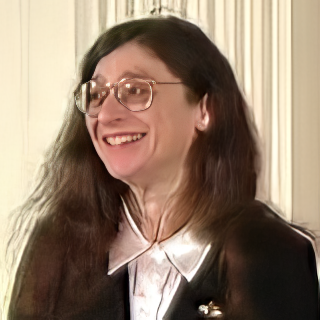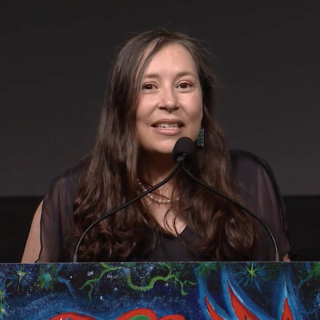Related Research Articles

Thomas Eugene Lovejoy III was an American ecologist who was President of the Amazon Biodiversity Center, a Senior Fellow at the United Nations Foundation and a university professor in the Environmental Science and Policy department at George Mason University. Lovejoy was the World Bank's chief biodiversity advisor and the lead specialist for environment for Latin America and the Caribbean as well as senior advisor to the president of the United Nations Foundation. In 2008, he also was the first Biodiversity Chair of the H. John Heinz III Center for Science, Economics and the Environment to 2013. Previously he served as president of the Heinz Center since May 2002. Lovejoy introduced the term biological diversity to the scientific community in 1980. He was a past chair of the Scientific Technical Advisory Panel (STAP) for the Global Environment Facility (GEF), the multibillion-dollar funding mechanism for developing countries in support of their obligations under international environmental conventions.

May Roberta Berenbaum is an American entomologist whose research focuses on the chemical interactions between herbivorous insects and their host plants, and the implications of these interactions on the organization of natural communities and the evolution of species. She is particularly interested in nectar, plant phytochemicals, honey and bees, and her research has important implications for beekeeping.
Barbara J. Meyer is a biologist and genetist, noted for her pioneering research on lambda phage, a virus that infects bacteria; discovery of the master control gene involved in sex determination; and studies of gene regulation, particularly dosage compensation. Meyer's work has revealed mechanisms of sex determination and dosage compensation—that balance X-chromosome gene expression between the sexes in Caenorhabditis elegans that continue to serve as the foundation of diverse areas of study on chromosome structure and function today.

Frances Hamilton Arnold is an American chemical engineer and Nobel Laureate. She is the Linus Pauling Professor of Chemical Engineering, Bioengineering and Biochemistry at the California Institute of Technology (Caltech). In 2018, she was awarded the Nobel Prize in Chemistry for pioneering the use of directed evolution to engineer enzymes.

Peter S. Kim is an American scientist. He was president of Merck Research Laboratories (MRL) 2003–2013 and is currently Virginia & D.K. Ludwig Professor of Biochemistry at Stanford University, Institute Scholar at Stanford ChEM-H, and Lead Investigator of the Infectious Disease Initiative at the Chan Zuckerberg Biohub.

Naomi E. Pierce is an American entomologist and evolutionary biologist who studies plant-herbivore coevolution and is a world authority on butterflies. She is the Hessel Professor of Biology and Curator of Lepidoptera in the Department of Organismic and Evolutionary Biology at Harvard University.

Günter P. Wagner is an Austrian-born evolutionary biologist who is Professor of Ecology and Evolutionary biology at Yale University, and head of the Wagner Lab.
The A.O. Kovalevsky Medal, awarded annually by the St. Petersburg Society of Naturalists for extraordinary achievements in evolutionary developmental biology and comparative zoology, is named after the noted Russian embryologist Alexander Kovalevsky. Since 2002, only one medal has been awarded annually .{Mikhailov and Gilbert, 2002}

Anurag Agrawal is an American professor of ecology, evolutionary biology, and entomology who has written over a 150 peer-reviewed articles, which earned him an h-index of 92. He is the author of a popular science book, Monarchs and Milkweeds from Princeton University Press, and is currently the James Alfred Perkins Professor of Environmental Studies at Cornell University.
Susan C. Alberts is an American primatologist, anthropologist, and biologist who is the current Chair of the Department of Evolutionary Anthropology at Duke University; previously, she served as a Bass fellow and the Robert F. Durden Professor of Biology at Duke. She currently co-directs the Amboseli Baboon Research Project with Jeanne Altmann of Princeton University. Her research broadly studies how animal behavior evolved in mammals, with a specific focus on the social behavior, demography, and genetics of the yellow baboon, although some of her work has included the African elephant. She was elected a fellow of the American Academy of Arts and Sciences in 2014, won the Cozzarelli Prize of the National Academy of Sciences in 2016, and was elected a fellow of the National Academy of Sciences in 2019.
Scott Vernon Edwards is the Alexander Agassiz Professor of Organismal and Evolutionary Biology at Harvard University and the Curator of Ornithology at Harvard's associated museum, the Museum of Comparative Zoology.
Paul Martin Brakefield FRS is a British evolutionary biologist and Professor of Zoology at the University of Cambridge, where he is also Fellow of Trinity College and until 2019 was director of the Museum of Zoology. He previously held the Chair in Evolutionary Biology at Leiden University in the Netherlands, and was President of the Linnean Society of London from 2015 to 2018. He is best known for his research on butterfly eyespots.
Anne Daphne Yoder is an American biologist, researcher, and professor in the Department of Biology at Duke University in Durham, North Carolina, United States. Yoder's work includes the study, preservation, and conservation of the multifarious biodiversity found in Madagascar. One of her main research topics focuses on the diverse lemur population found on the island. Specifically, Yoder's research concentrates on assorted geographic factors that lead to varying levels of biological differences in the speciation process. Her investigations utilize genome research to further understand the complex and unique degree of speciation that occurs in lemur populations. In 2023, she was elected to the National Academy of Sciences.

Adriana Darielle Mejía Briscoe is an American evolutionary biologist and Professor of Ecology and Evolutionary Biology at the School of Biological Sciences at the University of California, Irvine. She specializes in research questions at the intersection of sensory physiology, color vision, coloration, animal behavior, molecular evolution, and genomics.
Kelly Zamudio is the Doherty Chair in Molecular Biology in the Department of Integrative Biology at University of Texas Austin. She was formerly the Goldwin Smith Professor of Ecology and Evolutionary Biology at Cornell University and Curator of Herpetology at the Cornell Museum of Vertebrates.
Molly Fox Przeworski is an American population geneticist and professor in the Department of Biological Sciences at Columbia University, where she is also affiliated with the Department of Systems Biology, Center for Computational Biology and Bioinformatics, and Program for Mathematical Genomics. Her research focuses on identifying the effects of natural selection on genetic variation in human and non-human organisms.

Parastoo ("Parry") Hashemi is an Iranian-British neural engineer at Imperial College London and the University of South Carolina.
Mark A. Kirkpatrick is a theoretical population geneticist and evolutionary biologist. He currently holds the T. S. Painter Centennial Professorship in Genetics in the Department of Integrative Biology at the University of Texas at Austin. His research touches on a wide variety of topics, including the evolution of sex chromosomes, sexual selection, and speciation. Kirkpatrick is the co-author, along with Douglas J. Futuyma, of a popular undergraduate evolution textbook. He is a member of the United States National Academy of Sciences.
Blanche Capel is an American biologist and James B. Duke Professor of Cell Biology at Duke University. Her research focuses on vertebrate sex determination.
References
- ↑ Brody, Jane E. (1983-07-12). "Mosquito: The Enemy Reveals Its Ways". The New York Times. ISSN 0362-4331 . Retrieved 2018-12-20.
- ↑ "Nijhout, H. Frederik". Library of Congress Name Authority File. Retrieved 2018-12-20.
- ↑ "Fred Nijhout's Lab Page". Duke University. Retrieved 2018-12-20.
- ↑ Wade, Nicholas (1994-07-05). "How Nature Makes a Butterfly's Wing". The New York Times. ISSN 0362-4331 . Retrieved 2018-12-20.
- ↑ "H. Frederik Nijhout". Duke University. Retrieved 2018-12-20.
- ↑ Vashisth, Shagun (2018-04-18). "Four professors elected as 2018 American Academy of Arts and Sciences fellows". Duke Chronicle. Retrieved 2018-12-20.